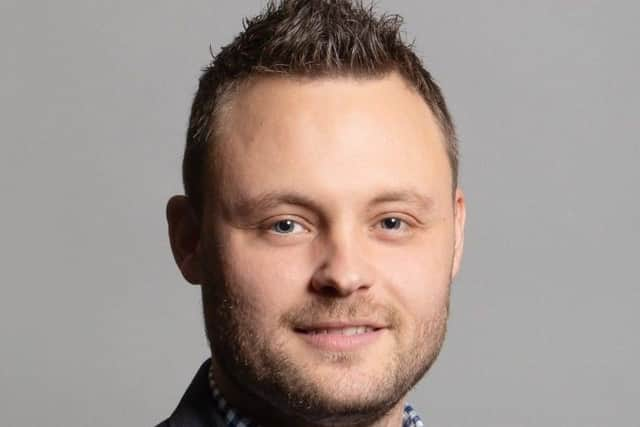Mansfield MP welcomes Government’s Primary Care Plan to make it easier to get GP appointments
and live on Freeview channel 276
Coun Bradley, Conservative MP for Mansfield and Nottinghamshire Council leader, said a strong primary care system reduces pressure on A&E, improves the efficiency of the NHS and helps people live healthier lives, but GPs are now facing a surge in demand because of the pandemic. Ten percent more GP appointments are happening every month compared to before the pandemic, but more needs to be done to modernise the primary care system.
That is why the Government is taking action and making it easier for people to get treatment more quickly by:
Advertisement
Hide AdAdvertisement
Hide Ad

- Tackling the ‘8am rush’ and making it easier for people to contact their GP, book an appointment and get the help they need within two weeks. Patients will no longer be asked to call back another day for an appointment and will instead know on the day how their request will be handled. If your need is urgent, you will be assessed the same day and get an appointment that day if you need one; otherwise you will get one within two weeks. Patient preference for a call, face-to-face appointment or online message will be respected. Government is investing £240 million in state-of-the-art digital systems to help GP practices deliver this and all practices will have the requisite training provided;
- Building capacity so practices can offer more appointments from more staff than ever before. Government is delivering and exceeding its commitment of 26,000 more primary care professionals – GPs, practice nurses and pharmacists – and 50 million more appointments by March 2024, backed by an extra £385 million this year. Increasing the annual allowance for pensions and abolishing the lifetime allowance will encourage GPs to stay in work or take on more hours. GP speciality training is also expanding and planning rules are changing to prioritise funding from new developments into more primary care facilities;
- Cutting unnecessary bureaucracy so GPs can spend more time focusing on patients. GPs workload outside of appointments has increased by over 50 per cent since the pandemic. Government will safely reduce the time GPs spend liaising with hospitals by, for example, allowing patients to get test results and fit notes directly rather than through GPs, reducing requests to GPs to verify medical evidence, and streamlining GPs’ priorities, with a focus on a smaller number of key national issues, including cancer and flu jabs;
- Providing more services in pharmacies and on the high street, increasing patient choice and alleviating pressure on GPs – saving up to 10 million GP appointments a year;
- Investment £645 million so more services are provided by high street pharmacies. 80 percent of people in England live within a 20-minute walk of a pharmacy and 90 percent feel comfortable consulting a pharmacist for minor illnesses. The Pharmacy First minor illness service means for the first time, pharmacists can by the end of the year supply prescription-only medicines for seven common illnesses such as a sore throat, earache, or a urinary tract infection. Expanding the number of pharmacies able to prescribe contraception will benefit around half a million women, and providing a further 2.5 million blood pressure checks in pharmacies will prevent heart attacks and strokes.
- Expanding the services available on the NHS App. Patients in over 90 percent of practices will be able to see their records (including test results, immunisations and consultation messages), book appointments and order repeat prescriptions using the NHS App by March 2024;
- Making it easier to self-refer, where it is safe to do so. Where GP involvement is not clinically necessary, direct access and self-referral will be expanded – for example for eye consultations, hearing aid provision, weight management services, and wheelchair and community equipment services.
Coun Bradley said: “My constituents are often contacting me about issues they are facing when trying to book a GP appointment, so today’s announcement is incredibly important for Mansfield and Warsop.
“I’ve spoken to staff at GP practices across the constituency, and I know how much pressure they are under and have seen first-hand how dedicated they are when it comes to providing care for patients. That’s why I’m pleased with Government’s £885 million Primary Care Plan, which will help to cut waiting lists by freeing up around 15 million GP appointments over the next two years, delivering a better service for patients.”